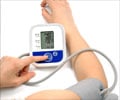Renowned cardiologist Dr. Gaurav Gandhi, aged 41, from Jamnagar, Gujarat, died of a heart attack.
- Dr. Gaurav Gandhi, a renowned young cardiologist from Gujarat, passed away from a heart attack, causing shockwaves in the city
- Sudden cardiac death is a swift and unexpected halt of all heart activity, often caused by irregular heart rhythms or underlying heart conditions
- Screening for sudden cardiac death risk factors, especially in young athletes, remains a topic of debate in the medical community, while prevention strategies include avoiding certain activities and considering medical interventions like implantable devices
The Guardian of 16,000 Hearts
His untimely death has particularly reverberated throughout the city, given his reputation as one of the youngest and most accomplished cardiologists in the region. Having performed over 16,000 successful heart surgeries during his relatively short career, Dr. Gandhi was highly regarded for his expertise and dedication. The tragic incident unfolded when Dr. Gandhi suddenly collapsed near his bathroom, shortly after returning home. He was swiftly transported to GG Hospital, where, despite the best efforts of medical professionals, he succumbed to a heart attack 45 minutes later.The somber confirmation of his passing came from Dr. Nandini Desai, the dean of MP Shah Medical College, adding to the profound sense of loss experienced by the medical community. Dr. Gandhi is survived by his wife and two children, who now bear the weight of this unexpected tragedy.
Sudden Rise in Sudden Heart Attacks
Sudden cardiac death, characterized by the abrupt cessation of all heart activity, leading to an immediate halt in breathing and blood flow, is a phenomenon distinct from sudden cardiac arrest.While the latter arises from irregular heart rhythms, prompt medical intervention can offer a chance of survival. Sudden cardiac death, however, is a rarity among seemingly healthy individuals under the age of 35 and is more prevalent among males.
In some cases, it is attributed to undiagnosed heart conditions, including genetic diseases, which may remain hidden until a tragic event occurs. These conditions can manifest during physical exertion, such as participating in competitive sports, but they can also strike without warning.
As the community mourns the loss of Dr. Gaurav Gandhi, it serves as a reminder of the silent risks that can lie hidden within seemingly healthy individuals, especially among the younger population. Awareness of the potential signs and risk factors associated with sudden cardiac death becomes crucial in identifying and addressing these conditions before tragedy strikes.
Sudden cardiac death is rare among seemingly healthy individuals under the age of 35 and occurs more frequently in males than females. In cases where sudden death occurs in adolescents and young adults, it is sometimes attributed to undiagnosed heart conditions, including genetic heart diseases. These undetected heart problems can lead to sudden death during physical activities, such as competitive sports. However, sudden cardiac death can also occur without exertion.
While most student-athletes participate in sports without experiencing heart issues, it is important for individuals or parents of young athletes at risk of sudden cardiac death to consult with healthcare providers regarding precautionary measures.
The occurrence of sudden cardiac death in young people is relatively uncommon compared to older adults, especially those with pre-existing heart conditions. However, sudden cardiac arrest remains the leading cause of death among young athletes. Estimates vary, but reports suggest that approximately 1 in 50,000 to 1 in 80,000 young athletes die from sudden cardiac death each year.
Several factors can contribute to sudden cardiac death in young individuals. Faulty electrical signaling in the heart, leading to ventricular fibrillation—a rapid and ineffective quivering of the lower heart chambers—often causes this type of death.
Conditions that strain or damage the heart, such as hypertrophic cardiomyopathy (thickened heart muscle), heart rhythm disorders like long QT syndrome, or blunt chest injuries known as commotio cordis, can increase the risk of sudden death. Additionally, congenital heart defects, present from birth, may lead to reduced blood flow and sudden cardiac death.
Parents, coaches, and others should remain vigilant for signs indicating a young person's risk of sudden cardiac death. Unexplained fainting during activity or exercise, shortness of breath, chest pain, or a family history of sudden cardiac death are potential warning signs that should prompt a thorough health evaluation.
Heart Safety First: Building a Future Free from Sudden Cardiac Death
Prevention of sudden death in young people is possible in some cases. High-risk individuals are typically advised to avoid competitive sports. Depending on the underlying condition, medical interventions such as medication or surgery may be recommended to mitigate the risk.Implantable cardioverter-defibrillators (ICDs) are medical devices that continuously monitor the heart's rhythm and deliver electrical shocks if a life-threatening heart rhythm problem occurs. Automated external defibrillators (AEDs) available at athletic training centers can also be used to treat cardiac arrest by delivering shocks to restore normal heart function.
The medical community debates the necessity of routine screening for sudden death risk factors in young athletes. While some studies suggest that mandatory heart evaluation using electrocardiograms (ECGs or EKGs) can lower the rates of sudden cardiac death, concerns about false-positive results and overdiagnosis of harmless conditions have been raised.
It is not yet clear whether preparticipation ECGs can effectively prevent sudden cardiac death, but they may help identify individuals at higher risk.
Individuals with a family history or risk factors for conditions associated with sudden cardiac death are typically recommended for screening. However, the American Heart Association does not recommend routine sudden cardiac death screening for non-athlete young people without heart disease symptoms (1✔ ✔Trusted Source
Pre-participation screening for the prevention of sudden cardiac death in athletes
Go to source).
Decisions regarding physical activity for young adults with heart problems should be made in consultation with healthcare providers. Depending on the specific condition, certain sports or exercises may need to be avoided.
For instance, individuals with implanted medical devices to monitor and regulate heartbeats should steer clear of full-contact sports to prevent dislodging the device due to a direct blow to the chest.
Ultimately, healthcare providers can provide guidance on safe sports and exercise options for individuals and their children based on their unique circumstances.
Reference:
- Pre-participation screening for the prevention of sudden cardiac death in athletes - (https://pubmed.ncbi.nlm.nih.gov/25237617/)
Source-Medindia










